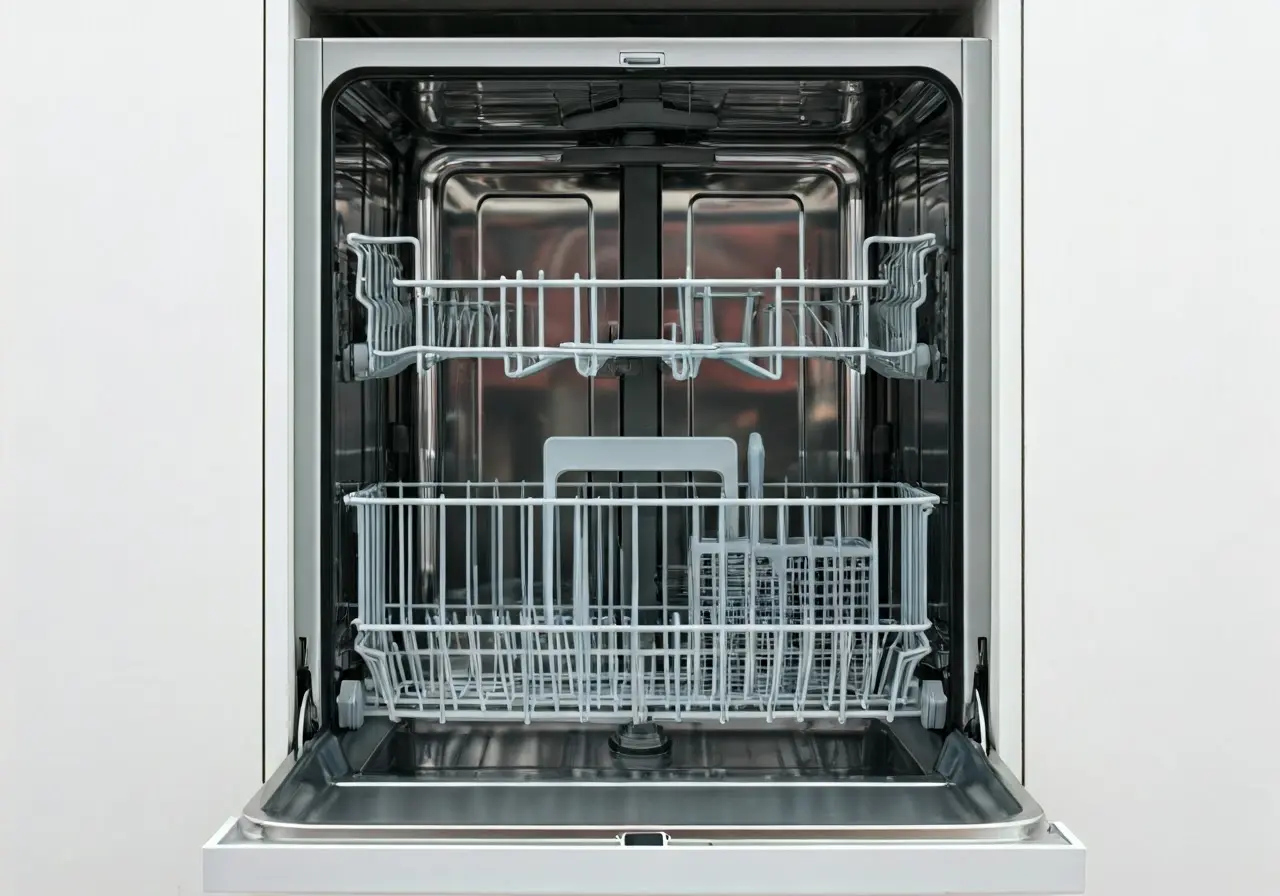Dishwasher not draining
Having a dishwasher that isn’t draining can be incredibly frustrating. Not only does it leave your dishes dirty, but it can also create a mess in your kitchen. Luckily, there are several common issues that can cause this problem, and many of them are relatively easy to fix. In this blog, we’ll walk you through what you need to know to identify and resolve the problem.
Common Reasons Your Dishwasher Isn’t Draining
There are several common causes for a dishwasher not to drain properly. These can include a clogged filter, a blocked drain hose, a malfunctioning drain pump, or issues with the garbage disposal. Let’s dive into these problems in more detail.
One frequent culprit is a clogged filter. Over time, food particles and debris can accumulate in the filter, obstructing the flow of water. This leads to standing water in your dishwasher at the end of a cycle. Regular cleaning of the filter can prevent this issue.
Another common problem is a blocked drain hose. The drain hose carries water from the dishwasher to your household plumbing. If it becomes kinked or clogged with debris, it can prevent water from draining properly. Make sure to inspect the hose and clear any obstructions. For a detailed guide on inspecting and cleaning the drain hose.
Checking and Cleaning the Filter
One of the easiest issues to fix is a clogged filter. Over time, food particles and debris can build up and block the filter, preventing water from draining. Locate your dishwasher’s filter, which is usually at the bottom of the unit, and give it a good clean.
To effectively clean the filter, first remove it from the dishwasher. Use warm water and soap to wash away the buildup. For stubborn debris, you might need a soft brush. Ensuring the filter is clean can significantly improve the drainage efficiency of your dishwasher. Regular maintenance can prevent more serious issues down the line.
If the filter is clean but the dishwasher still won’t drain, it might be wise to inspect the surrounding components. Sometimes, bits of food can get lodged in other parts, causing minor blockages that impede water flow. Check the impeller and the area around it to ensure there’s no buildup. Also, make sure to clean the entire area surrounding the filter regularly.
Inspecting the Drain Hose
If cleaning the filter doesn’t resolve the issue, the next step is to check the drain hose. Make sure it’s not kinked or blocked, as this can stop water from flowing out of the dishwasher. You may need to detach the hose to clear any blockages.
To inspect the drain hose, first turn off the power to your dishwasher for safety. Locate the hose, which usually connects from the bottom of the dishwasher to your household plumbing or garbage disposal. If you notice any kinks, gently straighten the hose. For blockages, you may need to disconnect the hose and flush it with water to clear out any debris.
In some cases, the drain hose may also be linked to an air gap or a garbage disposer. Ensure the air gap is not clogged and that the knockout plug in the disposer inlet has been removed. A blockage in these areas can also cause drainage issues. For more tips on connecting dishwasher drains to garbage disposers.
Understanding Bosch Error Codes OE and E25
If you own a Bosch dishwasher and see error codes OE or E25, it’s an indication of a drainage issue. Code OE generally means there’s a problem with the motor or pump, while Code E25 often points to a blocked pump or filter. Refer to your user manual for specific troubleshooting steps for these error codes.
Bosch error code OE typically indicates an issue with the motor or the pump responsible for draining the water. Resolving this might be more complex and could involve checking electrical connections or even replacing parts. It’s advisable to consult your dishwasher’s user manual for a more detailed troubleshooting process.
Error code E25 usually signifies there is a blockage in the pump or the filter. This can happen if large food particles or debris are not properly filtered out. In this case, you’ll need to clean the pump area and ensure there are no obstructions. Frequent maintenance checks can help avoid these error codes from surfacing. For comprehensive dishwasher repair service or help with Bosch-specific issues, visit Triton.
When to Call a Professional
Sometimes, even after taking all these steps, your dishwasher still won’t drain. At this point, it might be time to call in a professional. Persistent issues can indicate deeper mechanical problems that require expert attention to ensure your dishwasher runs smoothly again.
Professional repair services are equipped to handle complex issues that DIY methods might not resolve. Technicians can perform a thorough diagnosis and fix intricate problems involving the motor, pump, or even the electrical wiring. If your dishwasher is under warranty, getting professional assistance is even more crucial to avoid potentially voiding the warranty. For quality and reliable service, consider reaching out to Triton Appliance Repair.
For those residing in San Francisco, experiencing reliable dishwasher repair services offered by expert technicians can take the stress out of dealing with a malfunctioning appliance. They can diagnose and fix the issue swiftly, ensuring minimal disruption to your daily routine.
Final Thoughts
A dishwasher not draining can be a hassle, but with a little troubleshooting, you can often pinpoint the issue and get your appliance working again. Whether it’s a clogged filter, a blocked drain hose, or a more complicated issue like a Bosch error code, understanding the problem is the first step to resolving it. If the problem persists, it may be time to call in a professional. Happy dishwashing!

